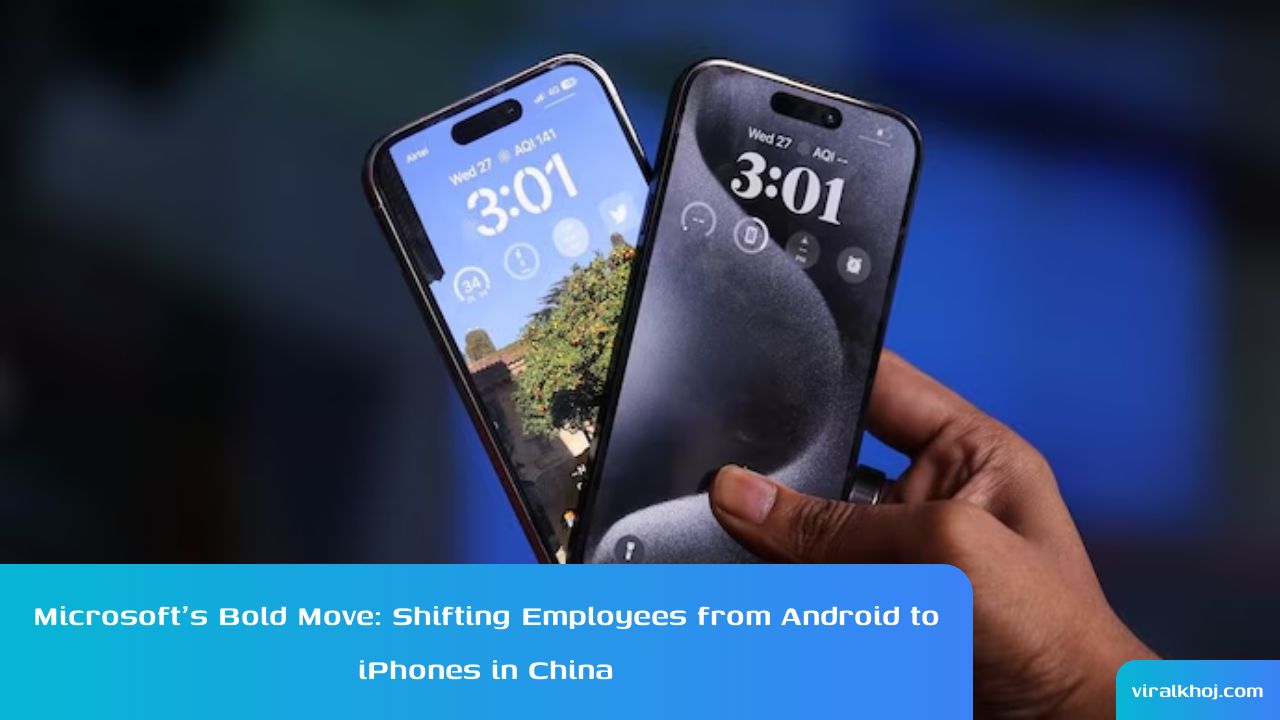Microsoft Bans Android in China, Employees to Shift to iPhones

Microsoft Bans Android in China, Employees to Shift to iPhones
In a surprising move, Microsoft China has recently banned the use of Android smartphones and has instructed its employees to switch to iPhones by September 2024. According to a report by Bloomberg, this directive was issued through an internal memo sent out to the employees. The same order has been given to the employees at Microsoft Hong Kong as well.
The memo states that all employees currently using Android smartphones, including popular Chinese brands like Huawei and Xiaomi, will be provided with the latest iPhone 15 by the company. To facilitate the transition, Microsoft is setting up dedicated points within its facility in China where staff members can collect their new iPhones.
One of the main reasons behind this sudden shift is the absence of the Google Play Store in mainland China. While it is still accessible in Hong Kong, Android users in mainland China have relied on app stores operated by Huawei or Xiaomi. However, Microsoft has now restricted access to these platforms, leaving employees with limited options.
The report also mentions that Microsoft will require its Chinese-based employees to use Apple devices for identity verification when logging into work computers or phones. Given that Apple's iOS App Store is available in China, the plan is for all employees to transition to iPhones. This move will enable them to seamlessly use Microsoft's Authenticator password manager and the Identity Pass app, thanks to the support for passkeys introduced by Microsoft in May 2024.
While this directive may seem abrupt, it comes at a time when Microsoft is facing increasing cybersecurity concerns. Earlier this year, the company disclosed that it had been targeted by the Russian-state-sponsored hacking group, Midnight Blizzard. This attack, described as a targeted reconnaissance mission, affected several US government agencies. As a result, Microsoft has been taking measures to enhance its security protocols.
It is important to note that this decision by Microsoft is limited to its operations in China and Hong Kong. It does not affect the company's global policy regarding smartphone usage by its employees.
In conclusion, Microsoft's ban on Android smartphones in China and the subsequent shift to iPhones for its employees is a significant move that highlights the challenges faced by multinational companies in operating within China's unique digital ecosystem. The absence of the Google Play Store and the restricted access to alternative app stores have compelled Microsoft to make this decision. While it may cause some inconvenience initially, the transition to iPhones will provide a more secure and seamless user experience for Microsoft employees in China.


The Ethical Implications of AI in Warfare: A Call for Responsibility
27 Aug 2024
Reddit Blocks Bing Search Engine Access: Impact on Other Search Engines
28 Jul 2024
Google's Privacy Shift: Implications for Chrome Users and Regulators
28 Jul 2024
Unlocking Infinite Context Lengths for Large Language Models: The EM-LLM Breakthrough
17 Jul 2024
Why EV and AI’s energy-saving pitch in India is a clickbait
17 Jul 2024